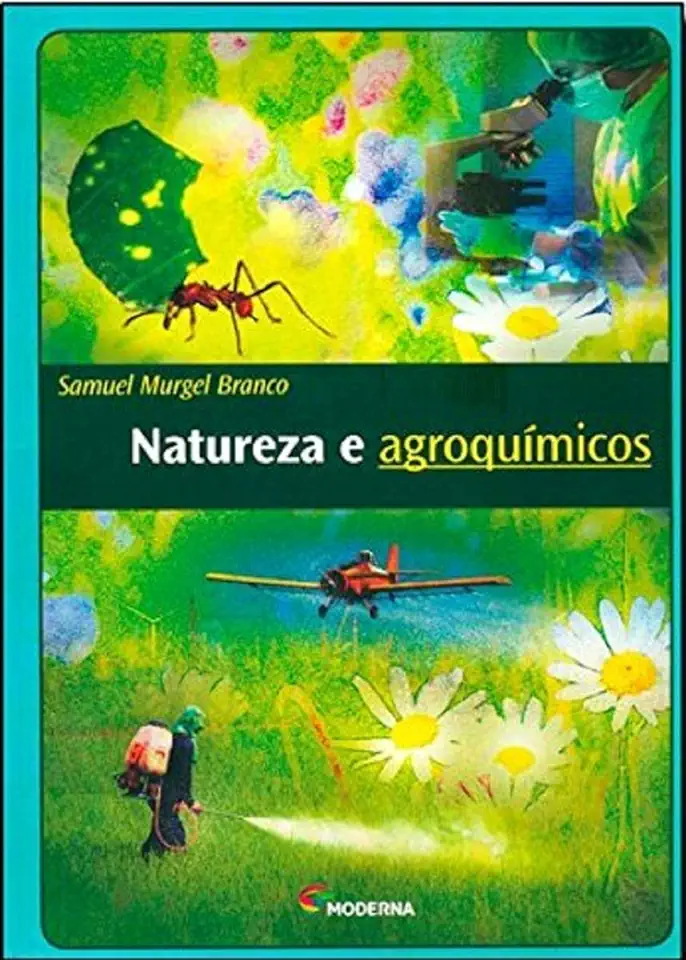
Nature and Agrochemicals Ed3 - VARIOUS
Nature and Agrochemicals: A Comprehensive Guide to the Impacts and Alternatives
In today's world, the use of agrochemicals has become an integral part of modern agriculture. However, the widespread application of these chemicals has raised concerns about their potential impacts on human health and the environment. This comprehensive guide, "Nature and Agrochemicals," delves into the complex relationship between agrochemicals and our natural ecosystems, providing a thorough understanding of their effects and exploring sustainable alternatives.
Understanding Agrochemicals and Their Impacts
Agrochemicals, encompassing pesticides, herbicides, fertilizers, and other chemical substances, are extensively used in agriculture to enhance crop yields and protect plants from pests and diseases. While these chemicals have undoubtedly contributed to increased food production, their indiscriminate use has led to several adverse consequences.
Environmental Impacts: Agrochemicals can contaminate soil, water bodies, and air, disrupting ecosystems and harming biodiversity. Pesticides, in particular, pose a significant threat to beneficial insects, birds, and aquatic life. The excessive use of fertilizers can lead to nutrient pollution, causing algal blooms and eutrophication in water bodies.
Human Health Concerns: Exposure to agrochemicals can have detrimental effects on human health. Pesticides and other toxic chemicals can cause acute and chronic health problems, including respiratory issues, skin irritation, neurological disorders, and even cancer. Residues of these chemicals in food products can also pose health risks to consumers.
Embracing Sustainable Alternatives
Recognizing the urgent need to address the negative impacts of agrochemicals, researchers and farmers are actively exploring sustainable alternatives that prioritize the health of both the environment and humans.
Organic Farming: Organic farming practices eliminate the use of synthetic pesticides, herbicides, fertilizers, and other chemicals. By relying on natural methods such as crop rotation, companion planting, and biological pest control, organic farming promotes soil health, biodiversity, and reduced environmental pollution.
Precision Agriculture: Precision agriculture utilizes advanced technologies to optimize the application of agrochemicals, minimizing their environmental impact. Techniques such as GPS-guided machinery, remote sensing, and variable-rate technology enable farmers to apply chemicals only where and when needed, reducing waste and runoff.
Biological Control: Biological control involves the use of natural enemies, such as predators, parasites, and pathogens, to manage pests and diseases. This approach reduces the reliance on chemical pesticides and promotes ecological balance.
Integrated Pest Management (IPM): IPM combines various pest management strategies, including biological control, cultural practices, and judicious use of chemicals, to minimize pest damage while preserving beneficial organisms and the environment.
Why You Should Read "Nature and Agrochemicals"
"Nature and Agrochemicals" is an essential resource for anyone concerned about the impacts of agrochemicals and seeking sustainable solutions. This comprehensive guide provides:
- In-depth analysis of the environmental and human health effects of agrochemicals.
- Detailed exploration of sustainable alternatives, including organic farming, precision agriculture, biological control, and IPM.
- Practical guidance for farmers, policymakers, and consumers on adopting sustainable practices.
- Inspiring case studies and success stories from around the world.
By understanding the challenges posed by agrochemicals and embracing sustainable alternatives, we can create a healthier and more sustainable future for our planet and its inhabitants. Join the movement towards a more responsible and harmonious relationship between agriculture and nature. Get your copy of "Nature and Agrochemicals" today and take the first step towards a greener and healthier tomorrow.